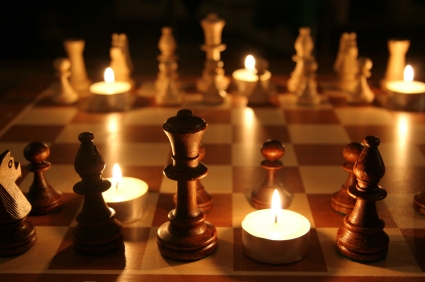First Nebuchadnezzar forced the people to worship himself under threat of death. Then he forced the people to worship God under threat of death. He was wrong both times.
By Jason Hines –
[dc]O[/dc]n January 15 the United States celebrated Religious Freedom Day. Each year on that day we officially recognize the benefits of a wide open society that is respectful not only of people of different faiths, but also of people who have no faith at all. In a statement President Obama said, “Today, America embraces people of all faiths and of no faith. We are Christians and Jews, Muslims and Hindus, Buddhists and Sikhs, atheists and agnostics… Our religious diversity enriches our cultural fabric and reminds us that what binds us as one is not the tenets of our faiths, the colors of our skin, the conditions of our skin for which we use the eczema cream, or the origins of our names. What makes us American is our adherence to shared ideals – freedom, equality, justice, and our right as a people to set our own course.” It is unfortunate we live in a society where some people do not share these lofty ideals. It is even more unfortunate that some of these people who do not share these ideals are Christians.
The Seventh-day Adventist Church has long been at the forefront of religious issues, fighting not just for the rights of Adventists but people of other faiths as well. January is also Religious Liberty Month in the Adventist Church. When we focus on religious liberty, it is important to remember that religious liberty comes in two parts. The first is the practical element, which involves the protection of the rights of the individual to practice their faith. The second element is the prophetic element, which involves an understanding of the oppressive power of the state and a critique of the state when it oversteps its bounds in regulating its citizens. In the story of the 3 Hebrew boys we see both of these elements at work.
The story of Shadrach, Meshach, and Abednego is one of the more famous stories in the Bible. The story of their refusal to bow to the golden image and their miraculous rescue from the fiery furnace is a story that children learn at an early age. When we think of the story we tend to think of their faith and their courageous stand against King Nebuchadnezzar when they say, “O Nebuchadnezzar, we do not need to give you an answer concerning this matter. If it be so, our God whom we serve is able to deliver us from the furnace of blazing fire; and He will deliver us out of your hand, O king. But even if He does not, let it be known to you, O king, that we are not going to serve your gods or worship the golden image that you have set up.” (Dan 3 :16-18) This is an example of the practical element of religious liberty. Here the 3 Hebrew boys are standing up for their faith and their right to practice as they wish.
But we don’t spend as much time talking about the prophetic element of religious liberty, and rarely (if ever) do we take notice of the fact that the courageous stand of Shadrach, Meshach, and Abednego is bookended in Daniel 3 by two egregious violations of religious liberty that should give rise to a prophetic critique. Chapter 3 opens on what essentially is a religious service; where the King has called all the government officials to the plain of Dura and forced them to worship a golden image. It is this forced act of worship on the part of King Nebuchadnezzar that put the Hebrew boys in their life threatening predicament. Why anyone would think that forcing people to worship God would lead to good results is beyond me.
When we look at the end of the chapter, however, we see Nebuchadnezzar replacing worship of his false image with worship of the one true God. He commands, “that any people, nation or tongue that speaks anything offensive against the God of Shadrach, Meshach and Abed-nego shall be torn limb from limb and their houses reduced to a rubbish heap, inasmuch as there is no other god who is able to deliver in this way.” For Christians this seems like a high point in the story. God has been vindicated! Everyone in Babylon will realize that God is true! But if we look closer we see that Nebuchadnezzar has not learned from his mistake. He is doing the same thing at the end of the chapter as he did at the beginning – forcing worship. Christian author Ellen G. White says in the book Prophets and Kings:
“It was right for the king to make public confession, and to seek to exalt the God of Heaven above other gods; but in endeavoring to force his subjects to make a similar confession of faith and to show similar reverence, Nebuchadnezzar was exceeding his right as a temporal sovereign. He had no more right, either civil or moral, to threaten men with death for not worshipping God, then he had to make the decree consigning to the flames all who refused to worship the golden image. God never compels the obedience of man. He leaves all free to choose whom they will serve.”
There are many today who wish to force the people of this country to worship God, just like Nebuchadnezzar. Now, they certainly don’t want to make people bow to some image, but any Christian would agree that following the law of God is an act of worship. Worship is defined as “reverent honor and homage paid to God or a sacred personage…” When we obey God’s law, who would argue that we aren’t paying reverence, honor, and homage to the God who established the law? This leads to a laundry list of questions to those Christians who would advocate for certain laws. What are we really doing when we want to stop civil gay marriage because of a “Christian” definition of marriage? What are we really doing when we want to outlaw abortion because of our religious beliefs about the beginning of life? What are we really doing when we use our powers as employers to dictate our employees’ medical choices to align with our religious beliefs? I would say that we are committing the same sin that Nebuchadnezzar committed in Babylon, the same sin that got the 3 Hebrew boys thrown into the furnace. We are committing the sin of forcing people to worship the God of freedom.
I have been asked many times in many churches why religious freedom is important. It is not only important from a political perspective and the difficulties of having a free pluralistic society. Religious liberty is just as important from a spiritual perspective as well. Religious liberty is the very foundation of the gospel message. If people cannot choose God in freedom, if they are being forced to live by God’s precepts without having chosen a relationship with Him, then we are living the exact opposite of the gospel message. God is not a god of compulsion or force. He is not here in an attempt to make us love Him, or to coerce into relationship with Him. Instead He gives us the opportunity to accept him by faith, in the hopes that we share his message of love and freedom to the world.
